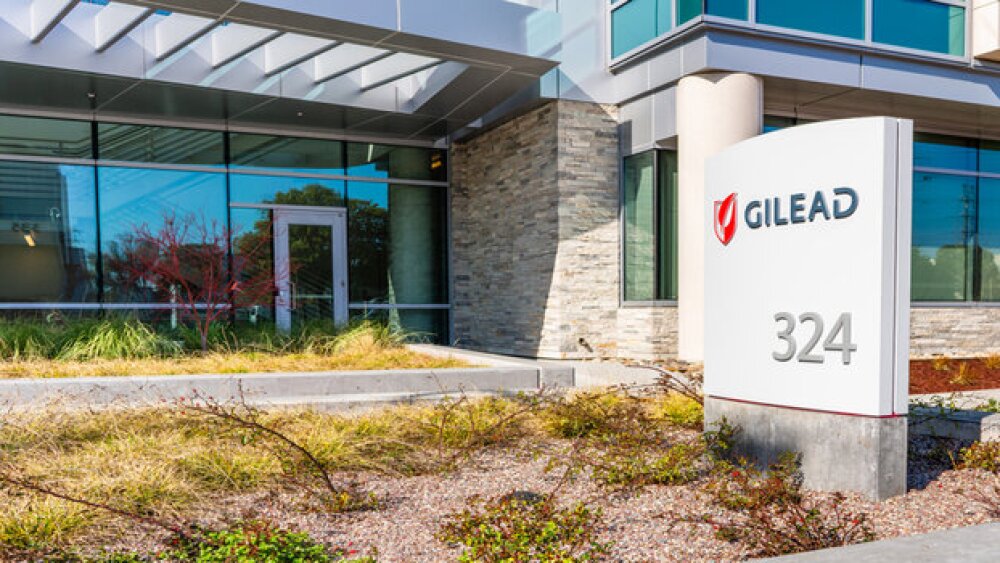Amid a hot antibody-drug conjugate market in oncology, Gilead Sciences announced Monday that its ADC Trodelvy did not reach a primary endpoint in a non-small cell lung cancer trial.
Pictured: Gilead signage outside its office in California/iStock, Sundry Photography
While antibody-drug conjugates have been a significant focus of dealmaking in 2023 and early 2024, Gilead Sciences on Monday announced a setback for its ADC Trodelvy (sacituzumab govitecan-hziy) which did not hit the mark in a late-stage clinical trial.
In the Phase III Evoke-01 study, Trodelvy failed to meet the endpoint of overall survival in previously treated metastatic non-small cell lung cancer patients when put up against the chemotherapy docetaxel.
Gilead said it will explore “potential pathways” to “further understand the role” the drug has in these patients. While the complete numbers from the trial were not made immediately available, the company said it plans to discuss the trial with regulators and that the data will be presented at an upcoming medical meeting.
However, the market did not react well to the news Monday morning, as Gilead’s stock price dropped by nearly 10%.
“The totality of our data gives us continued confidence in Trodelvy’s potential in metastatic NSCLC and our broader lung cancer clinical development program,” Gilead CMO Merdad Parsey said in a statement. “Treating metastatic NSCLC that has progressed on or after platinum-based chemotherapy presents significant challenges, and the need for safe and effective treatments remains urgent. We will work to identify further the metastatic NSCLC patient populations that may benefit from Trodelvy.”
Gilead tried to put a positive spin in Monday’s announcement noting a more than three-month difference in median overall survival favoring Troldelvy was observed in a “sub-group of patients non-responsive to last prior anti-PD-L1 therapy.” Gilead is still confident in its NSCLC program, claiming it has seen “strong preliminary efficacy” from a Phase II combo of Trodelvy and Keytruda (pembrolizumab).
The FDA approved Trodelvy in February 2023 to treat breast cancer, showing a 30% reduction in disease progression or death risk in 2022.
Though Trodelvy has not been approved by any regulatory agency for the treatment of metastatic NSCLC, Gilead said in Monday’s announcement that it is the first approved Trop-2-directed ADC “that has demonstrated meaningful survival advantages in two different types of metastatic breast cancers and improved clinical outcomes for certain people with 2L metastatic urothelial cancer.”
While the ADC market has been on a hot streak in oncology, mainly through heavy M&A activity, Gilead has not only been developing its internal treatments but also taking the acquisition route. In 2020, the company acquired Immunomedics in $21 billion buy, giving Gilead access to Trodelvy.
The ADC space continues to be hot in early 2024 as Roche inked a potential $1 billion deal with China-based MediLink Therapeutics to develop an ADC in oncology earlier this month.
Tyler Patchen is a staff writer at BioSpace. You can reach him at tyler.patchen@biospace.com. Follow him on LinkedIn.






